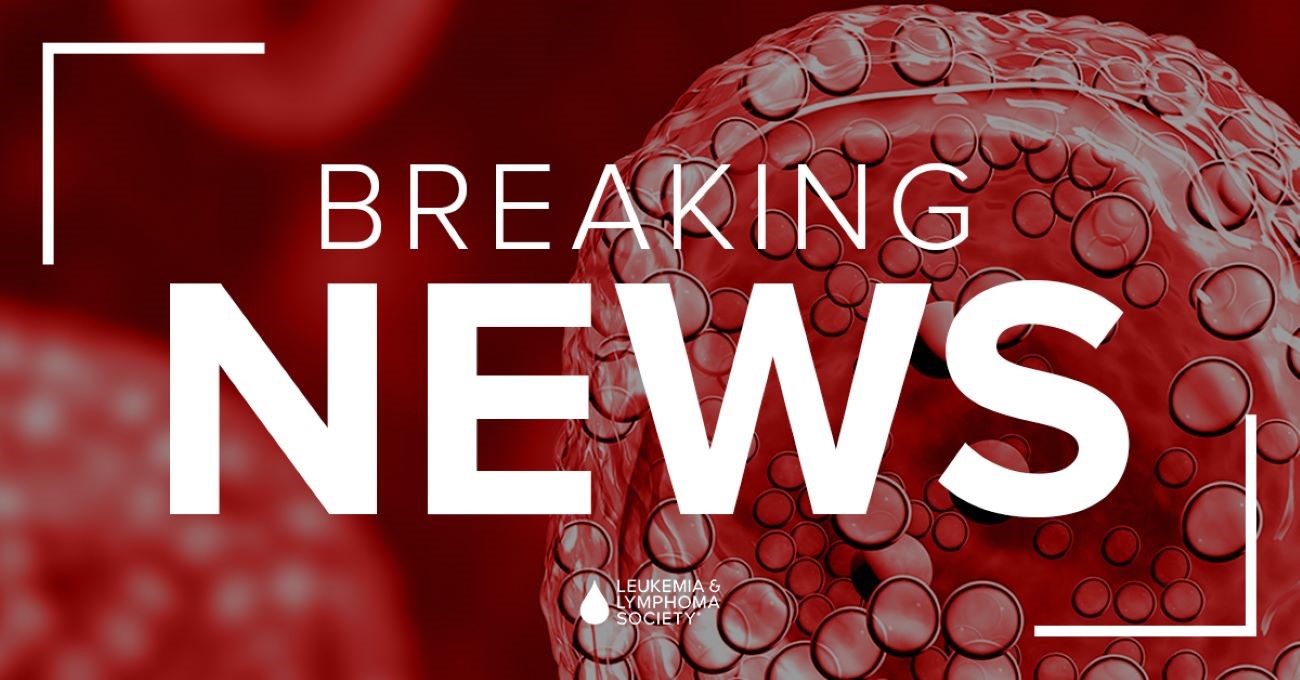The U.S. Food and Drug Administration (FDA) today approved the CAR T-cell treatment axicabtagene ciloleucel (Yescarta®) for patients with follicular lymphoma (FL) that has returned or worsened despite earlier treatment. FL is the most common slow-growing non-Hodgkin’s lymphoma and while the disease can generally be managed, reoccurrence is common.
LLS was among the first to invest in CAR T in the 1990’s. Today, the therapy has rapidly become a mainstay of cancer care. LLS supported clinical trials that lead to the first FDA-approvals in 2017 of tisagenlecleucel (Kymriah) for relapsed or refractory childhood B-cell acute lymphoblastic leukemia and axicabtagene ciloleucel for a range of B-cell lymphomas. Funding was provided by LLS’s academic grant program to Dr. Carl June’s team at the University of Pennsylvania as well as the Therapy Acceleration Program® (TAP; our venture philanthropy arm) to Kite Pharma, a Gilead Company.
This is the first ever CAR T-therapy approved to treat a form of indolent non-Hodgkin lymphoma. FL, and indolent Hodgkin lymphomas in general, tend to grow and spread slowly at first, but they become more aggressive with each relapse. While there has been substantial improvement in long-term survival for these lymphomas, they are generally not curable and new treatment options are crucial for patients whose follicular lymphoma has not responded or has returned.
Today’s approval of was based on impressive results from ZUMA-5, a global Phase 2 study in adults. After a single infusion of axicabtagene ciloleucel, 94% of the participants had a measurable response to treatment and 80% had a complete response, meaning no cancer was detected at the median follow up time of nearly 1.5 years.
While all cancers are different, recently reported results among some of the first large B-cell lymphoma patients treated with axicabtagene ciloleucel show long-lasting benefit. Close to half of the 101 patients in the follow-up are still alive 4 years after a single axicabtagene ciloleucel infusion.
Years of experience with axicabtagene ciloleucel also means physicians have a clear picture of its short- and long-term safety. Like all CAR T therapies, axicabtagene ciloleucel can cause some serious side effects, including a transient over-activation of the immune system called cytokine release syndrome (CRS) as well as immune effector cell-associated neurotoxicity syndrome (ICANS). Although CRS and ICANS can be serious, they are signals that the CAR T-cells are working and as physicians have become more experienced with CAR T, they have learned how to recognize and treat it earlier.
LLS is looking to the future to bring the benefits of CAR T therapy to more cancer patients
CAR T-therapy has dramatically changed the outlook for patients with a range of B-cell lymphomas, as well as children and young adults with acute lymphoblastic leukemia. While LLS celebrates these successes, there is much more work to be done.
LLS has committed more than $90 million in investments to cellular immunotherapy for the treatment of blood cancers and our commitment is as strong as ever. Our current focus for CAR T-cell therapy is to make it available for more types of cancer and to make it less costly and quicker to administer. To speed the process and lower costs, LLS-funded researchers are working on “off the shelf” CAR T-therapies that use donor T cells instead of having to harvest and re-engineer each individual patient’s T-cells before reinfusing them. Beyond this approach, LLS is supporting the development of CARs with another type of immune cell, known as natural killer (NK) cells, which may have more powerful tumor-cell killing capacity.
Current CAR T-treatments work by targeting a protein called CD19, which plays a key role in B-cell lymphomas. We are funding research into other protein targets including BCMA, which plays a key role in multiple myeloma. There are two BCMA-targeting CAR T-therapies in review by FDA for the treatment of multiple myeloma. The FDA decision on one is due in the next few months and the other is due later this year.
I look forward to writing about these new and exciting therapies soon and to keeping you informed about our work on behalf of the more than 1.3 million Americans living with or in remission from blood cancer.
